Words can do a great deal of lasting damage, as the cautionary tale of Jeremy Clarkson teaches us, writes David Knight.
I have to confess to laughing my socks off at comic gold being cultivated down on the farm in Jeremy Clarkson’s reality show.
I know I shouldn’t, after what he wrote about Meghan Markle. And after he was sacked from another show for punching a colleague. But I just can’t help myself, sorry.
I binge-watched the latest series of Clarkson’s Farm on Amazon Prime, and I’m not ashamed to say that his tractor ploughed a furrow all the way to my funny bone. It’s just about the only straight line he manages in a tractor throughout the series.
The fact I liked it doesn’t mean I condone the other stuff.
This show is a hit, with five-star reviews – from armchair viewers to professional critics. Even a lot of farmers love it.
He has won awards from farming institutions for flying the flag for British agriculture from his 1,000-acre spread in the Cotswolds. One sheep farmer memorably commented: “Clarkson has done more for farming in a series than BBC’s Countryfile did in 30 years.”

He just has natural comic timing and wonderful acerbic one-liners, the latter being the main cause of his downfall at times; you reap what you sow, as all farmers know.
But, in today’s world, don’t we need people like that even more? To take the powerful, incompetent and hypocritical down a peg or two when they deserve it?
Especially as the supposed freedom of social media has created a world of mediaeval-style intolerance, where any criticism triggers hate and venom to cancel it.
We should never be cowed about calling out the rich and famous, even when Meghan Markle paints herself as a victim. But free speech is a precious commodity which can turn toxic, too.
With Clarkson, his graphic choice of words about Meghan landed like a cow pat. It left him open to accusations that he crossed the line with personal abuse, and encouraged entrenched and abhorrent attitudes towards women.
I’m not a part-time publicist for Clarkson, I hasten to add. Even though we went to the same journalism college when starting out, but not at the same time; sad to say, I’m older.
Yet, ironically, something serious and worthwhile bubbles away beneath Clarkson’s self-deprecating humour and comic incompetence as a rich gentleman farmer. He highlights a string of agricultural issues which beset farmers everywhere and threaten their livelihoods, such as excessive red tape suffocating expansion and diversification.
These issues are being felt by food shoppers, too. A stark example showed planners dashing Clarkson’s hopes of setting up a co-operative to help other local farmers; two of whom – milk and pig producers – were in dire straits.
Clarkson’s column prompted 25,000 complaints
There were 25,000 complaints to the press regulator about Clarkson’s opinion column in a national newspaper . He wrote that he “hated” Meghan Markle, and dreamed of her being humiliated and paraded through the streets naked – copying a scene from Game of Thrones.
Watching him on TV made me wonder if his postbag was swelling with outraged mail from another direction, after taking a swipe at badgers, ramblers, cyclists and planning officials. Or from parents in general, as he held a small T-shirt aloft after climbing out of a tractor and said: “I think I just minced a small child.”
The written word isn’t as funny as a comedian’s punchline if delivered in a ham-fisted way
It’s all in the delivery, as any comic performer would tell you.
As a BBC spokesman once said, while trying to defend some new Clarkson complaint: “Jeremy says everything with a twinkle in his eye.”
Only a psychopathic lunatic would really hope for such a horror to befall Meghan, and he is clearly not that. But the written word isn’t as funny as a comedian’s punchline if delivered in a ham-fisted way; look at how much trouble poorly-worded emails and text messages have caused.
Traversing a fine line
Abuse of women remains one of the scourges of mankind, so Clarkson might have thought he was tiptoeing through the tulips down on his farm, but actually found himself crashing around a minefield.
Actually, I wonder if he was a proper stand-up comedian he might have got off lighter, pleading artistic licence? Remember Jo Brand saying: “Why bother with a milkshake when you could get some battery acid?” after Nigel Farage was doused with milkshake?
Or Billy Connolly asking: “Don’t you wish they’d just get on with it?” when it was still unknown if terrorists had murdered British hostage Ken Bigley in Baghdad; he was beheaded days later.
Now, TV show South Park has targeted Harry and Meghan, with an episode which parodied their “Worldwide Privacy Tour”; Meghan waved a placard saying: “Don’t look at me”. Softer than Clarkson’s brutal imagery, but still effective as a pin held to ballooning egos.
It reminds us, yet again, that words can be as dangerous as a grenade in clumsy hands. He’s presiding over a right old mess – just like the chaotic parking outside Diddly Squat Farm Shop.
David Knight is the long-serving former deputy editor of The Press and Journal
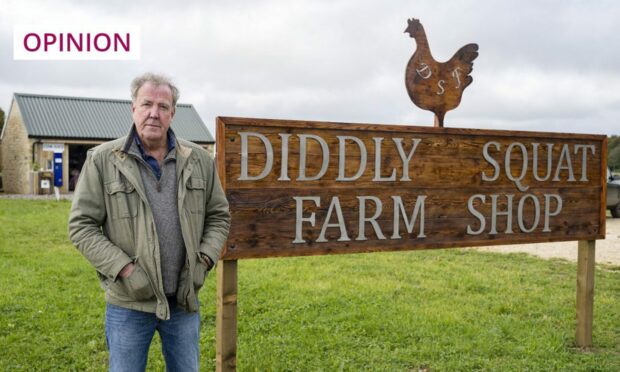


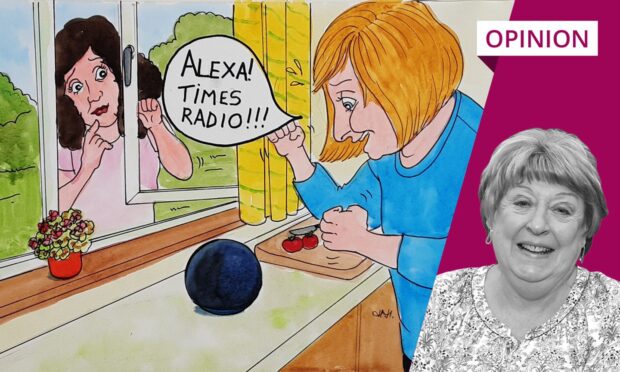
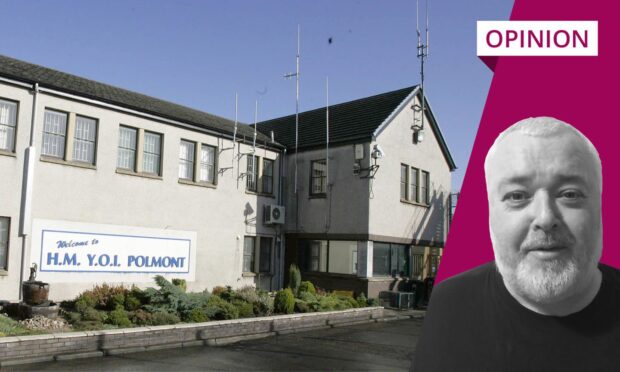
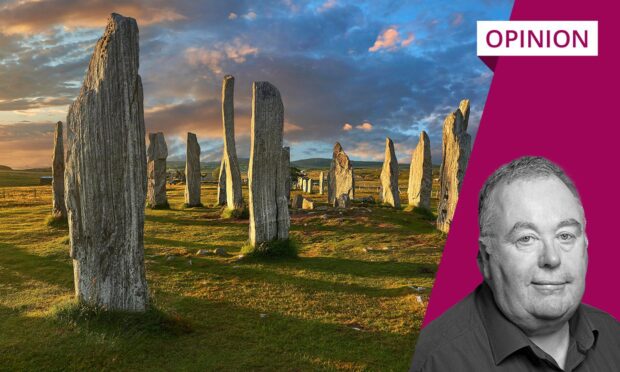
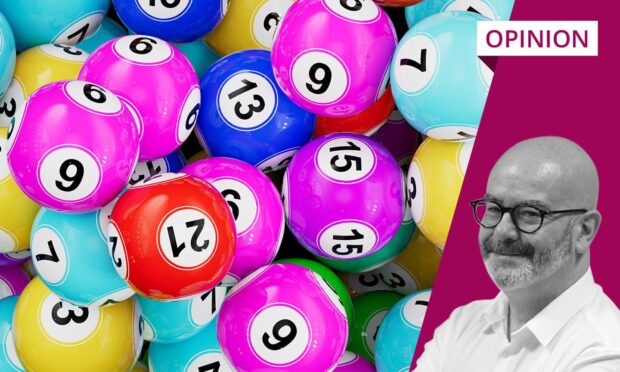
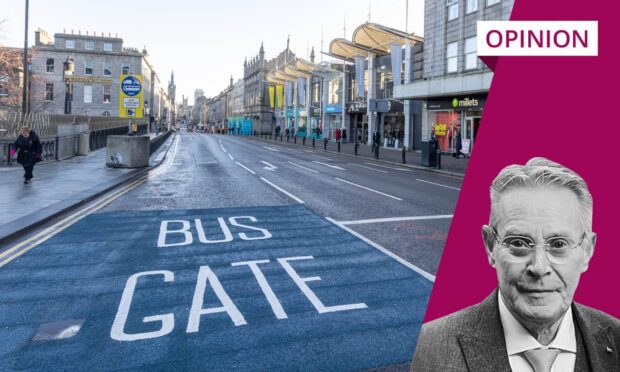
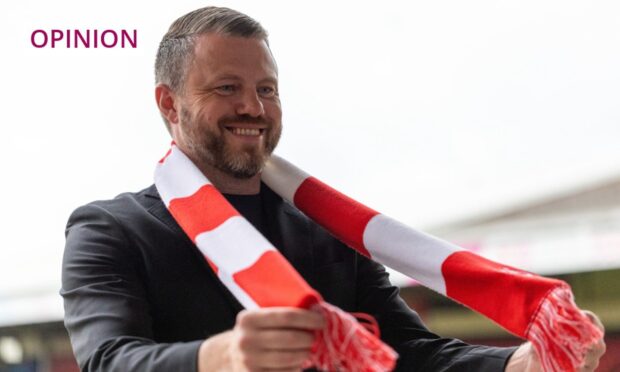
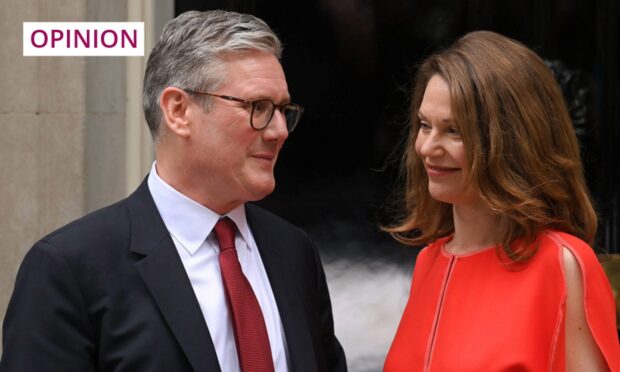
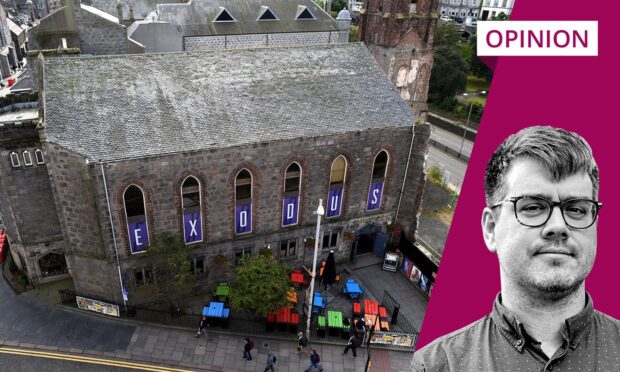

Conversation